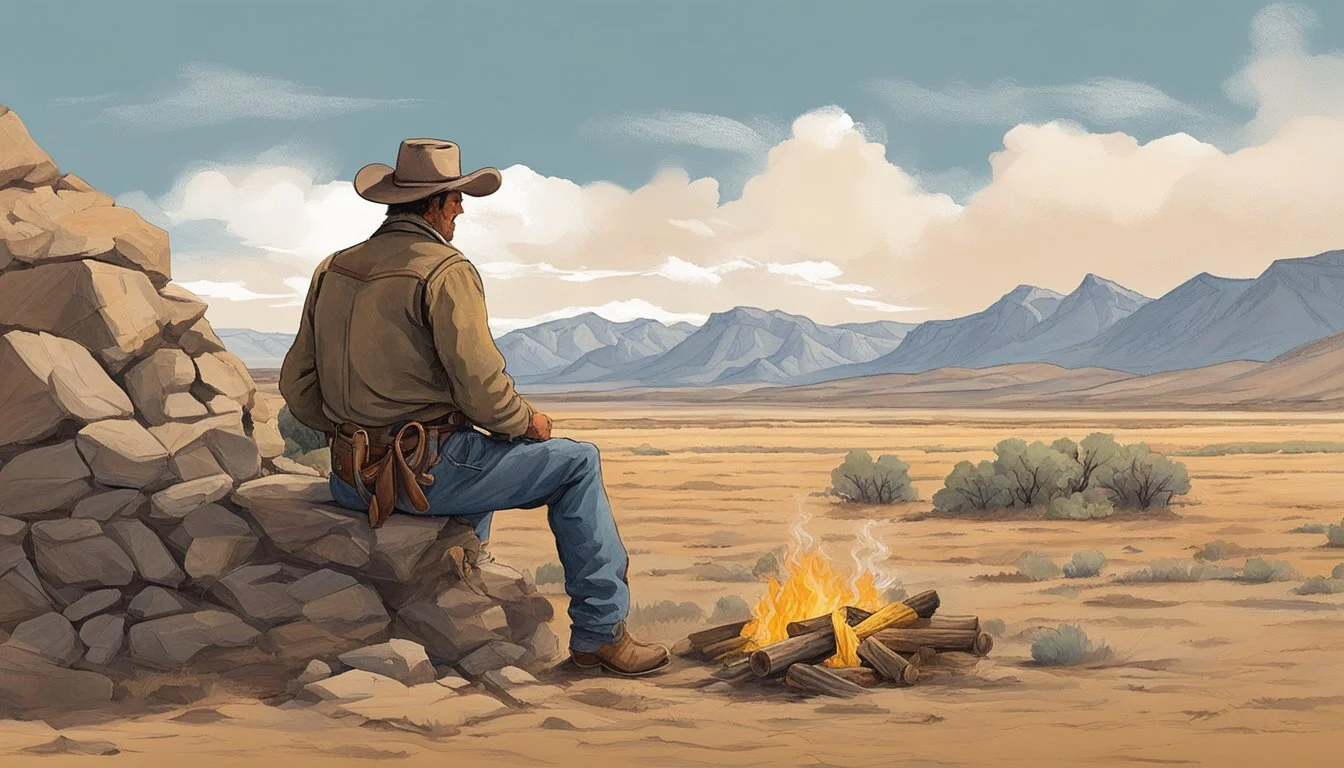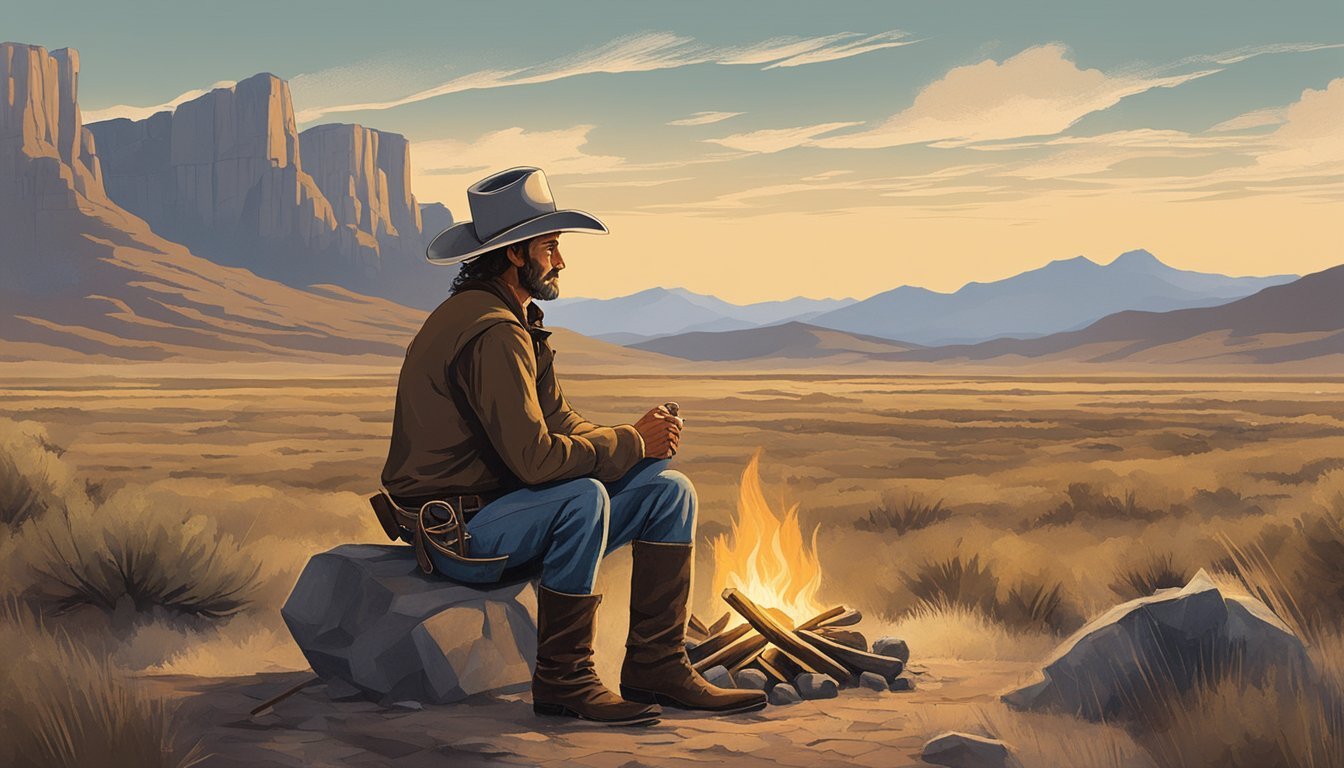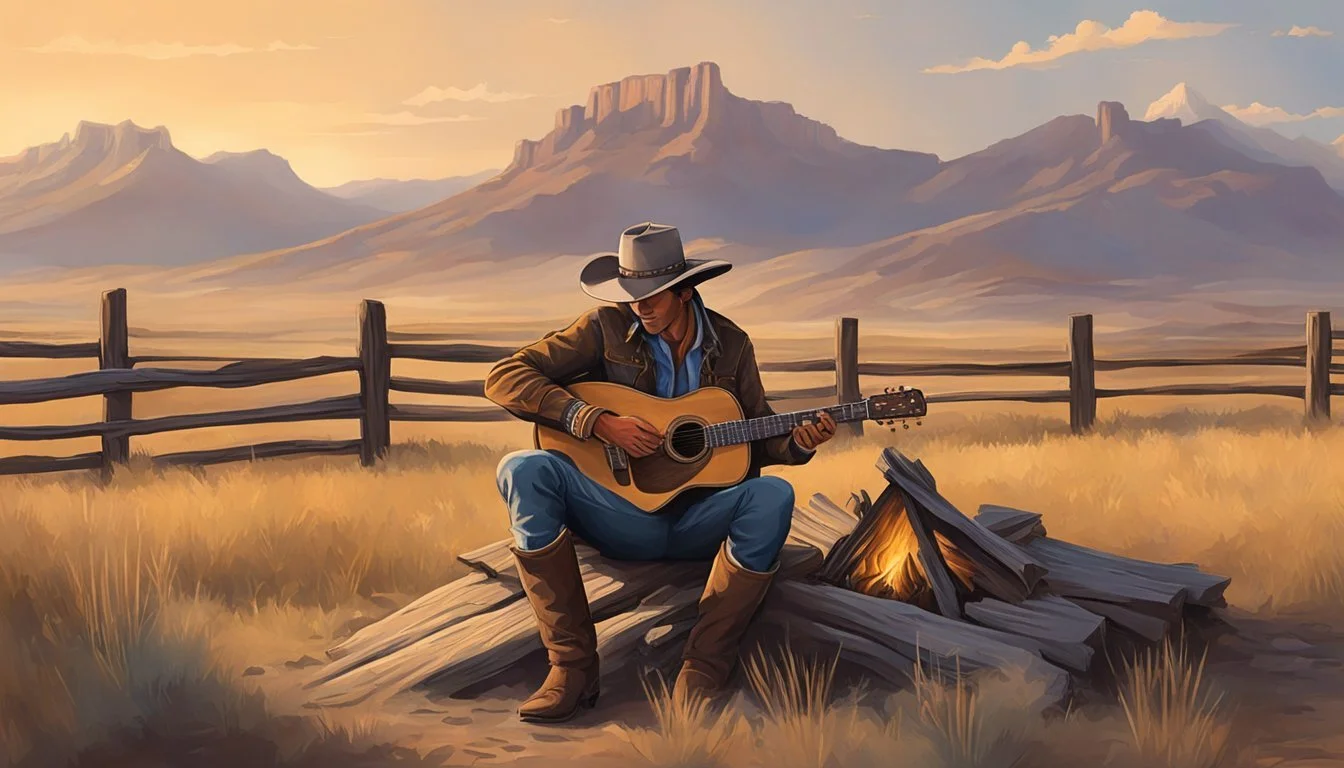The Importance of Cowboy Poetry
Echoes of Western Heritage Preservation
Cowboy poetry has long stood as a testament to the richness of Western heritage, capturing the life and experiences of those who have lived and worked on the frontier. This cultural artifact represents a unique amalgamation of storytelling traditions, integrating elements from Irish, Scottish, and Moorish influences, as well as Native American narratives and African improvisational techniques. Essentially, it chronicles the adventures, struggles, and spirit of the American cowboy, serving both as a historical record and a means to pass on the values and lifestyles of the rural West.
The genre began as a form of entertainment, a way for cowboys to entertain one another during the long, often isolating stretches of time spent on cattle drives and in remote camps. As a spoken word art form, cowboy poetry is characterized by its straightforward, rhythmic style which often includes elements of humor and pathos. The role of the cowboy poet is not merely one of an entertainer but of a cultural guardian—preserving and heralding the heritage through verses that often speak to the core of the cowboy identity, including themes of freedom, the beauty of the natural world, and the ethics of rural life.
While urbanization and technological advancements have shifted the dominant modes of cultural expression, cowboy poetry has experienced a resurgence, especially from the 1980s onwards, with festivals and gatherings that celebrate and continue the tradition. These events provide venues for both seasoned and emerging cowboy poets to share their work, thereby ensuring that the cowboy tradition remains a living part of the American cultural landscape. Such gatherings are not only celebrations but act as hubs for educational outreach, engaging the next generation and reinforcing the enduring significance of the cowboy's role in the tapestry of American history.
Historical Context of Cowboy Poetry
Cowboy poetry serves as a narrative tapestry, intricately woven with the threads of the Old West's cultural and occupational practices.
Origins of Cowboy Poetry
The roots of cowboy poetry can be traced back to the late 19th century, during the era of long cattle drives from Texas to marketplaces in Kansas post-Civil War. It was during these arduous journeys that cowboys started composing poems. They drew inspiration from a blend of diverse cultural influences including Irish storytelling, Scottish seafaring, and Moorish horsemanship, all infused with Native American experiences.
Key components of classic cowboy poetry include:
Rhyme Scheme: Traditionally, cowboy poetry followed simple rhyming patterns, making it easy to remember and recite during long trips on horseback.
Meter: A consistent meter was often employed, echoing the rhythmic trot of a horse.
Themes: Poems frequently explored daily life in the American West, from sunrise on the open range to the challenges of cattle tending.
Evolution and the American West
Cowboy poetry evolved alongside the transformation of the American West. As the West became more settled and the era of cattle drives came to an end, cowboy poetry persisted as a form of entertainment and a means of preserving the heritage and values of the cowboy lifestyle. The genre has become synonymous with the celebration of the Western spirit, encompassing:
Cultural Evolution: While maintaining its traditional forms, modern cowboy poetry also embraces contemporary subjects and styles, reflecting changes in the Western way of life.
Preservation of Heritage: Festivals and gatherings have emerged to celebrate and keep cowboy poetry an active part of American folklore.
Legacy: Notable cowboy poets like Buck Ramsey and Joel Nelson have been recognized as National Heritage Fellows, indicating the genre's significance in American cultural history.
Elements of Cowboy Poetry
Cowboy poetry serves as a medium for sharing the narratives and experiences of the American West. Its distinct characteristics pay homage to both the lifestyle and history of cowboys.
Themes and Motifs
Cowboy poetry often explores themes such as the rigors of ranch work, the expansive western landscapes, and the communal spirit of cattle drives. Poets weave stories celebrating the resilience and independence inherent in the cowboy ethos. Motifs frequently include horses, cattle, and the cowboy's relationship with nature.
Rhyme and Rhythm
The rhyme schemes of cowboy poetry tend to follow traditional patterns, with a particular emphasis on ABAB or AABB. The meter is often regular and rhythmic, reflecting the steady cadence of a horse's trot or the measured pace of a day's work on the range. This rhythm aids in the recitation and memorability of the poems.
Language and Imagery
Cowboy poetry utilizes a language rich with imagery depicting rural life and the natural world. Specific jargon associated with ranching and roping is often employed, lending authenticity and flavor to the verses. Imagery within these poems paints vivid pictures of the landscape, from the dusty plains to the star-filled night skies.
Notable Cowboy Poets and Their Contributions
The written and spoken words of cowboy poets preserve the realities and myths of the American West. Their contributions have kept the spirit of the cowboy lifestyle alive and thriving into the contemporary era.
Pioneering Poets
Buck Ramsey
Buck Ramsey is a legend in the world of cowboy poetry, often referred to as the "spiritual leader" of the movement. His magnum opus, "Anthem," captures the essence of the West through its vivid narrative and emotional depth. Ramsey's work left an indelible mark on the genre, encapsulating the trials and triumphs of cowboy life.
Baxter Black
Baxter Black, a former large animal veterinarian, has made a significant impact with his humorous and often poignant poetry. His performances have brought cowboy poetry to a broader audience with a blend of laughter and reflection on the Western way of life.
Contemporary Voices
Waddie Mitchell
A modern torchbearer of the tradition, Waddie Mitchell has gained acclaim for sharing his firsthand experiences through poetry. His authentic storytelling and commitment to preserving the cowboy heritage resonate in his recitations, keeping the spirit and stories of the West alive for future generations.
Andy Hedges
Andy Hedges is a contemporary storyteller and poet whose work preserves and honors the oral traditions of the West. He connects past and present by interpreting classic cowboy poems and offering his distinct material, ensuring the continuity of the cowboy poetry tradition.
Preservation of Cowboy Poetry
Cowboy poetry serves as a vital conduit for the stories, values, and traditions of the American West. Its preservation is critical for maintaining a link to the past and understanding the cultural dynamics of the region.
Anthologies and Archives
The preservation of cowboy poetry is greatly supported by the collection and archiving of works. Anthologies such as books and online collections play a pivotal role, serving as permanent records that can be accessed by future generations. Archives such as the Western Folklife Center store and maintain these collections, facilitating research and access. They capture the diverse voices of cowboy poets, encompassing both historical and contemporary works.
Institutions and Festivals
Key institutions contribute to the preservation of cowboy poetry by providing platforms for performance and recognition. The National Cowboy Poetry Gathering in Elko, Nevada is among the most distinguished events dedicated to celebrating and maintaining this art form. It not only showcases established poets but also nurtures new talent. The National Endowment for the Arts has recognized prominent cowboy poets as National Heritage Fellows, helping raise public awareness and appreciation for the tradition.
Education and Outreach
Education initiatives ensure the perpetuation of cowboy poetry through active participation and learning. Local contests, such as those for students to write their own cowboy poems, stimulate interest and creativity in younger generations. Outreach efforts by various organizations, including educational workshops and community programs, further extend the reach of cowboy poetry, rooting its significance deeper into the fabric of American culture.
Cowboy Poetry in Modern Culture
Cowboy poetry serves as a touchstone for Western heritage, reflecting its values and traditions while adapting to contemporary cultural landscapes.
Influence on Music and Literature
Cowboy poetry has significantly influenced Western music and American literature, resonating through the lyrics and narratives of today's artists and writers. Many country musicians incorporate cowboy poetry's themes and stylistic elements into their songs, preserving the traditional storytelling aspect. Artists like Dom Flemons, known for his work with the Carolina Chocolate Drops, build upon these narratives, blending historical context with modern sensibility in their lyrics.
The Digital Frontier
In the age of the internet, cowboy culture and cowboy poetry have found a new pasture—online platforms. Websites, social media, and podcasts are proving to be fertile ground for both established poets and newcomers who wish to share their work. Digital mediums allow these rustic verses from a bygone era to reach a global audience, thereby ensuring their continuity and relevance.
The Future of Cowboy Poetry
The future of cowboy poetry appears promising as it continues to draw interest across various demographics. Educational programs and poetry gatherings, such as the National Cowboy Poetry Gathering, keep the art form alive, fostering a community of enthusiasts who are eager to carry on the tradition. As oral stories and storytelling evolve, cowboy poetry adapts, ensuring that this unique aspect of western culture remains a vibrant and enduring testament to America's past.
Exploration of Key Works
Cowboy poetry serves as a cultural vessel, transporting the essence of American Western heritage through its verses. The analysis of classic poems alongside the rise of new classics offers a unique perspective on the genre's evolution and its role in preserving tradition.
Analysis of Classic Poems
Classic poems of cowboy poetry capture the life and ethos of the American West with vivid storytelling and a strong sense of place. One of the definitive works in this genre is "Little Joe the Wrangler", which weaves a tale of youth, adventure, and the harsh realities of cowboy life. It mirrors the historical experiences of those who worked the land and the cattle during the West's formative years. The poem's narrative style and rhythmic cadence are emblematic of the genre, making it a cornerstone of cowboy poetry study.
The Emergence of New Classics
As the tradition of cowboy poetry endures, new classics emerge, paying homage to the past while reflecting contemporary Western experiences. These pieces often incorporate modern sensibilities and topics but remain rooted in the fundamental characteristics of classic cowboy poetry, such as a strong narrative and a connection to Western life. The importance of these new classics lies in their ability to continue the storytelling legacy and keep the spirit of cowboy culture relevant for future generations.
Impact on the Cowboy Way of Life
Cowboy poetry serves as a tangible connection to the traditions and daily experiences of the western rancher, offering insights into a lifestyle that has shaped American cultural identity.
Reflection of Ranch Life
Cowboy poetry vividly portrays the complex and often arduous realities of ranching. Within its rhymes and rhythms, it captures the essence of long days spent in the saddle, the challenges of weather and terrain, and the bond between a cowboy and his livestock. The audience can envision scenes of cattle drives, the solace of the open range, and the hum of activity around the campfire. Poems often serve as instructional tales, revealing the skills and values necessary to thrive in this rigorous profession.
Community and Identity
In cowboy poetry, the essence of community and personal identity within the ranching culture is celebrated. It fosters a sense of camaraderie among those who share this unique way of life. Through oral recitations at gatherings or in published collections, these poems allow individuals both within and outside the cowboy community to connect with this heritage. The campfire becomes a metaphorical gathering place, where audiences convene to share stories and reinforce their collective identity as custodians of the cowboy legacy.







